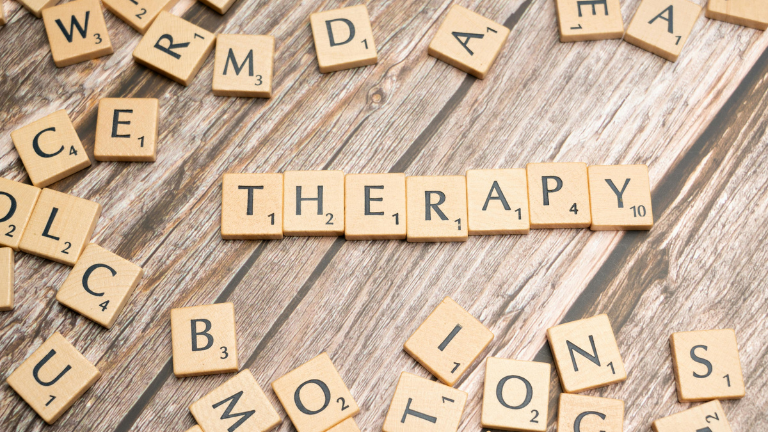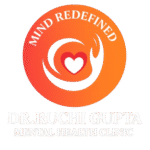The Science Behind Depression: What Happens in the Brain?
Depression affects millions of people worldwide, and as a clinical psychologist, I often find that understanding the science behind mental health depression can be the first step toward healing. Today, let’s explore what actually happens in your brain when you experience depression, and why treatments for depression are so important for recovery.
Understanding Your Brain's Chemistry
Think of your brain as a complex network of messengers, constantly sending signals that affect how you feel, think and behave. When someone experiences depression, this messaging system gets disrupted. As a mental health professional, I’ve seen how this disruption can impact every aspect of a person’s life, making depression therapy an essential part of the recovery journey.
The main chemical messengers (neurotransmitters) involved in depression include:
- Serotonin: Usually referred to as the ‘feel-good’ chemical, serotonin has an important role in mood, sleep, and appetite regulation
- Dopamine: Responsible for motivation, pleasure and reward
- Norepinephrine: Affects energy levels and attention
When these chemicals become imbalanced, it can trigger mental health depression symptoms like persistent sadness, loss of interest in activities, and changes in sleep patterns.
The Physical Changes in Your Brain
Recent research has shown that depression does more than just affect brain chemistry. Various treatments for depression are designed to address these physical changes:
- The hippocampus (memory center) can shrink during long-term depression
- The amygdala (emotion center) shows increased activity
- The prefrontal cortex (decision-making area) may function differently
These changes help explain why depression isn’t just “feeling sad” – it’s a real medical condition requiring proper depression therapy and support.
The Stress Connection
Chronic stress significantly contributes to depression. When you are under constant stress, cortisol (the stress hormone) increases in your body. Over time, elevated cortisol levels can:
- Interfere with the production of new brain cells
- Affect memory formation
- Disrupt normal sleep patterns
- Impact immune system function
This is why many treatments for depression include stress management techniques alongside other therapeutic approaches.
Breaking the Cycle: How Treatment Works
As a psychologist, I’ve observed that successful mental health depression treatment often requires a comprehensive approach. The brain’s remarkable ability to change and adapt (neuroplasticity) means that with proper intervention, we can help repair and strengthen healthy neural connections.
Common therapeutic approaches include:
- Psychotherapy (Talk Therapy)
- Helps identify negative thought patterns
- Develops coping strategies
- Addresses underlying emotional issues
- Lifestyle Changes
- Regular exercise increases natural feel-good chemicals
- Healthy sleep habits support brain function
- Nutritious diet provides essential nutrients for brain health
- Social Support
- Connection with others boosts positive brain chemicals
- Reduces isolation common in depression
- Provides practical and emotional support
The Role of Professional Help
Depression therapy works by targeting multiple aspects of the condition. When you work with a mental health professional, they can create a personalized treatment plan that might include:
- Cognitive Behavioral Therapy (CBT)
- Mindfulness techniques
- Medication (when appropriate)
- Lifestyle modifications
The Path to Recovery
Recovery from depression is a journey, and understanding the science behind it can provide hope and motivation. Remember that your brain has the ability to form new connections and heal with proper support and treatment.
Looking Forward
As our understanding of depression continues to grow, new treatments for depression are being developed. Research in neuroscience is constantly revealing more about how our brains work and how we can better support mental health.
If you are having symptoms of depression, there is help. The science clearly shows that mental health depression is a treatable condition, and with proper support and depression therapy, recovery is possible.
Final Thoughts
Understanding the science behind depression helps us see it for what it is: a complex but treatable condition that affects both mind and body. As a mental health professional, I encourage anyone struggling with depression to reach out for help. With proper support and treatment, you can work towards better mental health and well-being.
Remember, depression isn’t a choice or a sign of weakness – it’s a medical condition that deserves proper attention and care. If you or someone you know is struggling with depression, don’t hesitate to reach out to a mental health professional who can guide you through the recovery process.
Dr. Ruchi Gupta is a licensed clinical psychologist specializing in depression and mood disorders. She has an evidence-based treatment program for her patients, strengthened by human compassion in practice to help them access the scales for their better mental health and overall wellness.







